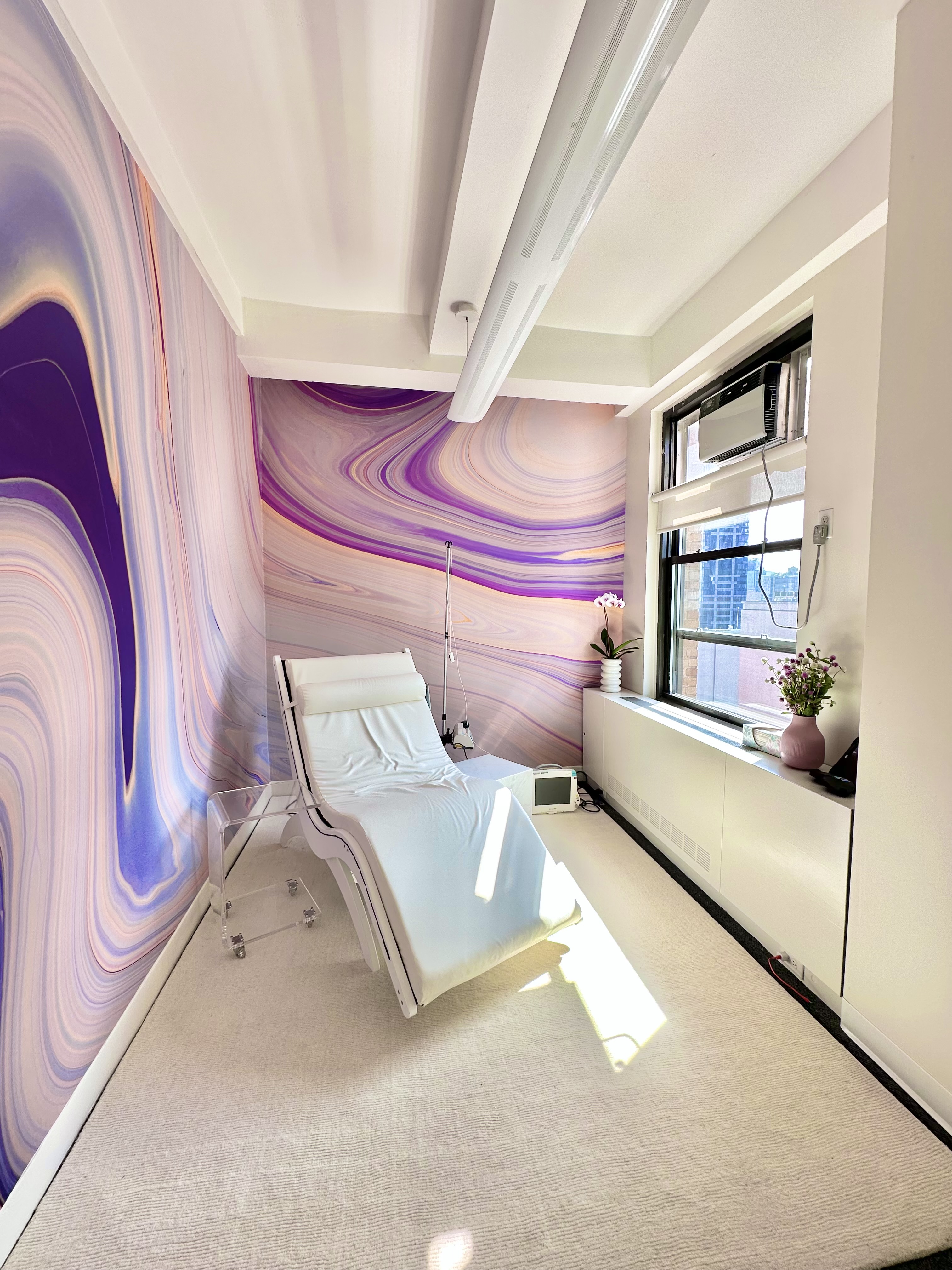Frequently asked questions
Q: What is ketamine psychedelic therapy? A: Ketamine psychedelic therapy is a type of therapy that uses the dissociative anesthetic ketamine, in combination with psychotherapy, to treat mental health conditions such as depression, anxiety, and post-traumatic stress disorder (PTSD). Ketamine is unique relative to other psychedelics in that it can be administered legally in New York, in a safe and controlled fashion.
Q: What is ketamine psychedelic therapy? A: Ketamine psychedelic therapy is a type of therapy that uses the dissociative anesthetic ketamine, in combination with psychotherapy, to treat mental health conditions such as depression, anxiety, and post-traumatic stress disorder (PTSD). Ketamine is unique relative to other psychedelics in that it can be administered legally in New York, in a safe and controlled fashion. Q: How does ketamine work in psychedelic therapy? A: Ketamine works within the glutamate system by blocking the N-methyl-D-aspartate (NMDA) receptor in the brain, leading to NOSC, or non-ordinary states of consciousness. This can create a unique opportunity for therapeutic intervention and the exploration of emotions and thought processes. Please visit this NIH article for more information. Q: Is ketamine therapy safe? A: When administered in a controlled environment by a trained anesthesiologist, ketamine is very safe. The main risk is the incidence of nausea during the session, and we almost always premedicate with zofran to prevent this. There is commonly a transient increase in blood pressure and heart rate during ketamine infusions, which is easily treatable with intravenous medications. There are certain contraindications to ketamine therapy, and a detailed past medical history is essential prior to the initiation of therapy. Q: Is ketamine FDA approved? A: Ketamine is approved by the FDA as an anesthetic for surgical procedures. It’s use as a therapy for depression or anxiety is considered off-label. It’s important to note here that off-label use of medicine by physicians is very common. In addition, ketamine is a generic drug that is not owned or controlled by any drug company, thus, little incentive exists for investing in FDA approval at this time. Despite a large body of evidence supporting its safe and efficacious use, we do not anticipate that generic ketamine infusions will soon become FDA approved for use in treating mood disorders. Q: How long does a ketamine therapy session last? A: An IV infusion is usually given over 45 minutes, and the patient typically relaxes after the termination of the infusion for at least 20 to 30 minutes. Q: How many ketamine therapy sessions are required? A: The number of ketamine therapy sessions required can vary depending on the individual's condition and response to treatment. Some patients may experience significant relief after just one session, while others may require several sessions over a period of weeks or months. At The Space Between we feel that committing to a series of infusions and concomitant integration work gives the patient the best chance at significant and lasting improvement in symptoms. Q: How long do the effects of ketamine therapy last? A: The effects of ketamine therapy can be profound and long-lasting. Studies have shown that ketamine can reduce symptoms of depression and anxiety in as little as a few hours and that the effects can last for several weeks or even months. It is important to note that the treatment is not effective in 100% of patients and a certain subset of patients may not experience improvement in symptoms. Q: Can ketamine therapy be used in conjunction with other treatments? A: Yes, ketamine therapy can be used in conjunction with other treatments, such as antidepressants or psychotherapy. We believe the gold standard of ketamine therapy is an intravenous infusion followed by integration with a therapist trained in Ketamine assisted Psychotherapy. Q: Are there any risks associated with ketamine therapy? A: Like any medication, ketamine has potential side effects, including nausea, vomiting, dissociation, and changes in blood pressure and heart rate. However, when administered in a controlled environment by a board certified anesthesiologist, we believe the risks associated with ketamine therapy are minimal. Q. How is intravenous ketamine therapy different from other routes of administration? A: We believe the intravenous route is the most efficient and effective way to administer this medication. Intravenous therapy gives the highest bioavailability (>99%) and thus allows the patient to experience the greatest effect using the least amount of medication. This efficiency translates to a more rapid recovery and lower side effect profile. The infusion settings are carefully chosen by our staff anesthesiologist, and can be titrated in real time depending on the patient’s response. Unlike oral or intranasal administration, there is no reservoir of medication, so once the infusion is stopped, the drug is metabolized rapidly by the liver and the patient can be in a more clear-headed position to reflect on their experience. Q: Do you take insurance? A: We are not in network with any insurance carrier, however we can provide a superbill that can be used for "out-of-network" claims. Please contact us at contact@thespacebtwn.com for more information. Q: Where are you located? A: The Space Between is located in Lower Manhattan, NYC. Our location is provided once a patient completes the intake process. Q: How can I sign up? A: Please click on “CONTACT” and we will get in touch with you to start the intake process. Or Call us at 917-915-0175
